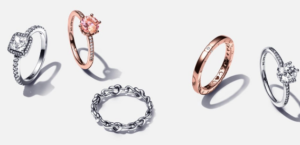Pandora, known for its affordable sterling-silver charm bracelets, is the world’s largest jewelry company by volume: The Danish chain sells more than 100 million pieces annually. This week, it announced that it is now sourcing only 100-percent-recycled silver and gold for its collections.
The move was touted as an important step by a massive company to reduce its environmental footprint. “We wanted to lead by example,” Pandora’s chief executive, Alexander Lacik, said in an interview. “If we can make positive contributions to society through our use of recycled gold and silver, it means anyone can do it.”
By working with metals that have already been mined, Pandora won’t be digging deeper in search of new materials, allowing the company to substantially reduce its greenhouse gas emissions.
Mining requires more energy and resources than recycling and is a leading source of mercury pollution. In a 2020 news release announcing its shift to recycled metals, Pandora cited statistics from the World Gold Council and other entities showing that the process of recycling gold reduces emissions by about 99 percent compared to mining it, while recycling silver reduces carbon emissions by about 66 percent compared to mining it.
Orban appeared alongside angry farmers in Brussels (video)
Other brands, like Prada and Monica Vinader, have also started using recycled metals. But some industry observers warn that those materials can seem more virtuous than they may really be.
Like “sustainability” the word “recycled” can mean different things to different people. That interpretation gap can prove problematic, said Tiffany Stevens, the chief executive of the Jewelers Vigilance Committee, an organization in New York City that focuses on ethics and policy advocacy in the industry.
“Recycled is a positive modifier in most contexts but that isn’t necessarily the case when it comes to gold or silver,” she said. The term “recycled,” she added, gives jewelry made with such materials a “green halo,” or an aura of being environmentally friendly.
But the term does not “give people any clear answers about where their metals came from,” Ms. Stevens said, which is a reason her organization and others have asked the Federal Trade Commission to disallow the use of “recycled” to describe jewelry products sold in the United States. The F.T.C. is expected to respond this year when it releases updates to its environmental marketing guidelines.
Continue here: NY Times
Ask me anything
Explore related questions





